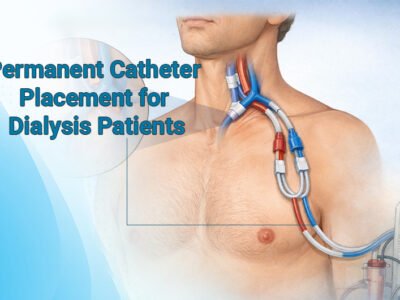“Awareness is the first step in healing”, a well-articulated quote that tells us the power of knowing. To be in a position of thinking about getting dialysis is obviously unfortunate but to be aware of what you are getting into is the wisest thing to be done. Here are some important things you need to know about dialysis.
What is dialysis?
The dogmatic definition of dialysis is a process in which a patient’s waste products are artificially removed. It is done when the kidneys of the patient are not in the condition of filtering the blood and the symptoms of which are; breathlessness, lack of appetite, drowsiness, nausea, seizures, etc.
Is dialysis permanent or temporary?
Many people have a notion of dialysis that once started the process, a patient has to be on permanent dialysis but this notion is incorrect. The time duration of the need for dialysis depends upon the damage of the kidneys. If the kidneys of a patient are temporarily damaged, two or three sittings of dialysis might be enough for the kidneys to recover, and after that dialysis is stopped. On the other hand, when the kidneys of the patient are permanently damaged, dialysis is to be done on a permanent basis. The permanency of dialysis is decided by a nephrologist after proper evaluation.
The life expectancy of a patient on permanent dialysis
As dialysis is only a bridge for transplantation. That means dialysis is a procedure to keep the patient alive till they can go for transplantation. The data shows that if we take 100 people on dialysis, after 5 years only 30-40 people would be alive. Therefore, the average life expectancy of people on permanent dialysis is 5 to 10 years. That is the reason for transplant being a better option than dialysis.
What are the types of dialysis?
So, there are two types of dialysis:
- Hemodialysis – The main process in this type of dialysis is to circulate the impure blood into a dialyzer and then put the filtered and clean blood back into the body.
- Peritoneal dialysis – This type of dialysis is done using the peritoneal lining of the abdomen without the external circulation of the blood.
How is the basic lifestyle affected by dialysis?
- Patients need to switch to a specific diet depending on the type of dialysis one is undergoing. Mostly, liquid intake is restricted during the period when one is dependent on dialysis.
- Patients who have less intensive jobs can return to work once getting used to the procedure.
- The discomfort experienced by the patient is only during the insertion of needles, i.e., only during the time of dialysis. On the other hand, it makes a patient feel better after each session.
- The judgment of stopping the treatment always lies in the hands of patients.
- The span of life after willfully stopping dialysis depends on the functionality of the kidneys. And on that basis, a patient might live for some days to some weeks.
For more information,
Contact our kidney specialist,


